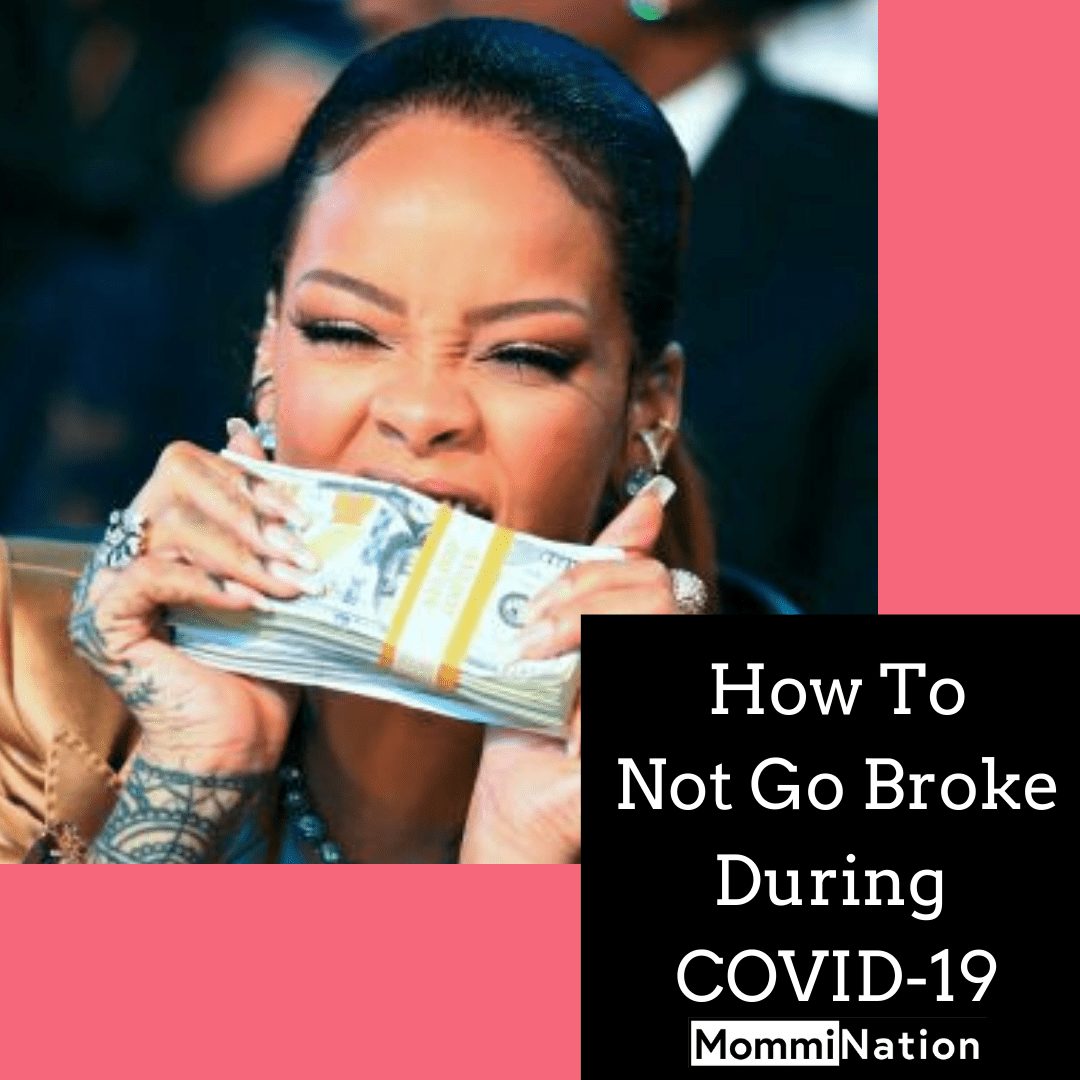With the current pandemic and national emergency of the Cornoavirus (COVID-19), the world is in a state of panic and fear of the unknown. The effects of this pandemic not only impacts our physical health but also our financial health. It’s no secret that COVID-19 has already done major damage to the economy. Many experts have predicted that we were heading towards a recession. Now, more than ever, is the time to be proactive in preparing for the worst. At this point, the financial impacts have already begun. In the short 3 months of 2020 alone, I have lost over $30,000 in my person 401k. And it’s true what they say, the best time to prepare for a financial crisis is BEFORE the crisis, but there is still time to set things in place to ensure this pandemic will not leave your family in complete financial disarray. This doesn’t mean it’s time to panic, it means it’s time to prepare. Here are 4 tips to help you to prepare for the financial impacts of COVID-19 and focus on your financial health through the Mommi Madness.
Step 1: First things first, Trim the Fat
Now is the time to cut all expenses that are deemed unnecessary. Pull out your bank and credit card statements and review all outgoing payments. Start to evaluate what is necessary. Do you really need cable, Netflix, Hulu, Amazon Prime, and Sling TV? I know, I know, how are you going to quarantine and chill? You don’t have to cancel them all, but you also don’t need every streaming app there is. Are you using that music app that automatically credits your account each month? How often have you actually utilize that gym membership that you pay $29.99 for each month? With the government plea to stay home, many of us are not using our gym memberships anyway. Check with your gym to see if they are suspending payments for 60 days. Do you even remember setting up those auto payments for that photo editing app? If you’re not using it, CANCEL IT! This is a small step that could save you hundreds of dollars.
This is the perfect time to review all of your expenses and contact the servicers for lower rates. Contact your insurance company, your internet/cable company, credit card company, and your gas/electric company to negotiate your monthly rate and/or shop around for lower rates. I just received an email from my credit card company offering a temporary reduction in my interest rate that is 10% less than my normal interest rate. This is the time to be diligent in taking advantage of reducing your expenses. I was able to save $550 with just 1 extensive review of my expenses.
How to not go broke during COVID-19: X all Unnecessary Purchases
This is also not the time to make unnecessary purchases. You do not need those $1,000 red bottoms sis, put them DOWN! Where are you going to wear them anyway on IG live? LOL Avoid major expenses at all cost. Pay for necessities and save the rest. When we recover from this pandemic, have at it, spoil yourself, but until then, let’s make responsible decisions with our coins.
How to not go broke during COVID-19: Budget
Create a Budget and Stick to it If you don’t have a budget by now, you need one! Budgeting gives you complete control over your money and it is empowering!! Know exactly what you can and cannot afford, know exactly where your money is going, and avoid overspending. To save money and stick to your budget, use promo codes, use money saving apps, and use coupons. This will definitely help you to trim the fat! Here, I give you 6 steps to creating a budget.
There have been talks about the government stimulating the economy by issuing checks to the American people. The details about how this will come to fruition has not been determined but, if we are given a stimulus check, now is the time to think about how you will maximize on this opportunity.
Step 2: Save, Save, Save
This is the time that you are either thankful that you created an emergency savings fund or beating yourself up because you haven’t. Well, there’s no need in beating yourself up because you can start one now. Now that you have “trimmed the fat” in step one, you have extra money to save. Start to create your emergency fund now! I mean the president did declare a national emergency. After all of your necessities are covered, save the rest. Open a savings account today. The trick is to keep your accounts simple but distinct. I personally have 3 accounts. A savings account, a bills account, and a spending account. I have separate accounts to keep all of the funds distinct to avoid overspending and falling behind on the items that are most important like monthly living expenses or savings. Use your budget in step 1 to determine how much money should allocate to your savings account. If possible, have your employer directly deposit your allocated savings into a separate savings account that has a high yield interest rate to get your maximum return of investment. Banks will most like start to lower savings interest rates now that the FED has announce a reduction in interest rates. You can lock in a rate with a CD. Regardless of what type of account you utilize, put money aside for a rainy day and do it fast because it’s starting to drizzle.
You want to put this money in an account that is more difficult for you to access (to avoid spending on non-emergency items) but easy enough to access in case of an actual emergency. If there is an actual emergency, you can easily transfer money into your checking account and make payments accordingly.
Step 3: What to do with Investments and Debt Payments?
First of all… don’t panic! This will be a balancing act with equal focus on paying off debt, paying monthly expense, investing, and saving. The government announced on Friday, March 13th that they will be waiving the student loan interest until further notice and 1 week later on March 20th that they will suspend student loan payments for the next 60 days. This is very new information so more to come on how this will actually be implemented. Personally, I am currently aggressively paying off my student loans. Continue paying your debt if possible. Work your minimum debt payments into your budget. Whether you’re paying off credit cards, student loans, a mortgage, or your car, don’t stop! Make at least the minimum payments. The quicker you pay off this debt, the less your expenses will be, and the more you can save for times like this. Don’t go overboard, remember, the name of the game is to BALANCE! Don’t let the pendulum swing too far to savings or to debt payoff but more towards saving especially if you don’t have an emergency fund.
What to do with your investments?! Again, don’t panic! If you have a while until you retire, don’t make any sudden moves with your retirement funds. I mentioned earlier that my 401k has dropped over $30,000. That is very alarming, but history has shown that it will bounce back. Continue to contribute as normal. Stocks are very cheap at the moment and your contributions will pay off in the long run. Think about it, if you are continuing to contribute $100 to our 401k, your money can stretch further now and buy more in the market. Personally, I will continue to pay at the rate my company matches (8%).
Step 4: Create a new source of income

Use this time as an opportunity to reflect and research additional sources of income. If you have a passion, start thinking about ways to make it a paycheck. Do you have knowledge on a specific topic?, determine ways to sell it. If you want to be financially stable, you have to start thinking of ways to have multiple streams of income. And by multiple, I mean 3 or more. One way to generate more income is to negotiate your current salary. Do your research! Research the average pay for your position with your current education and experience, write a compelling case with research to support your proposal and present it to your employer.
Find something that you already enjoy and think of ways to generate income from it. If you are great at reviewing resumes, charge for it, if you enjoy driving, try Uber, if you are really good in math, become a tutor, if your employer offers overtime, pick up extra shifts. In a time like this, children are out of school and working mommies need childcare. If you are a stay at home mommi, start a in home daycare to help mommies continue work. Now is the time to think about how to provide and monetize off on digital content and virtual services.
How to Not Go Broke During COVID-19
COVID-19 has added another meaning to mommi madness. This blog was initially thought of to help mommies focus on our financial goals through the madness we mommies experience everyday, but in true mommi style, we pivot and we find ways to prioritize and focus on the most important. Although our money goals are important, preparing our families for successes through a possible financial downfall is essential.
The most important thing to remember is to not panic during this the madness. Stay calm and prepare for the worst while hoping for the best.









Leave a Reply